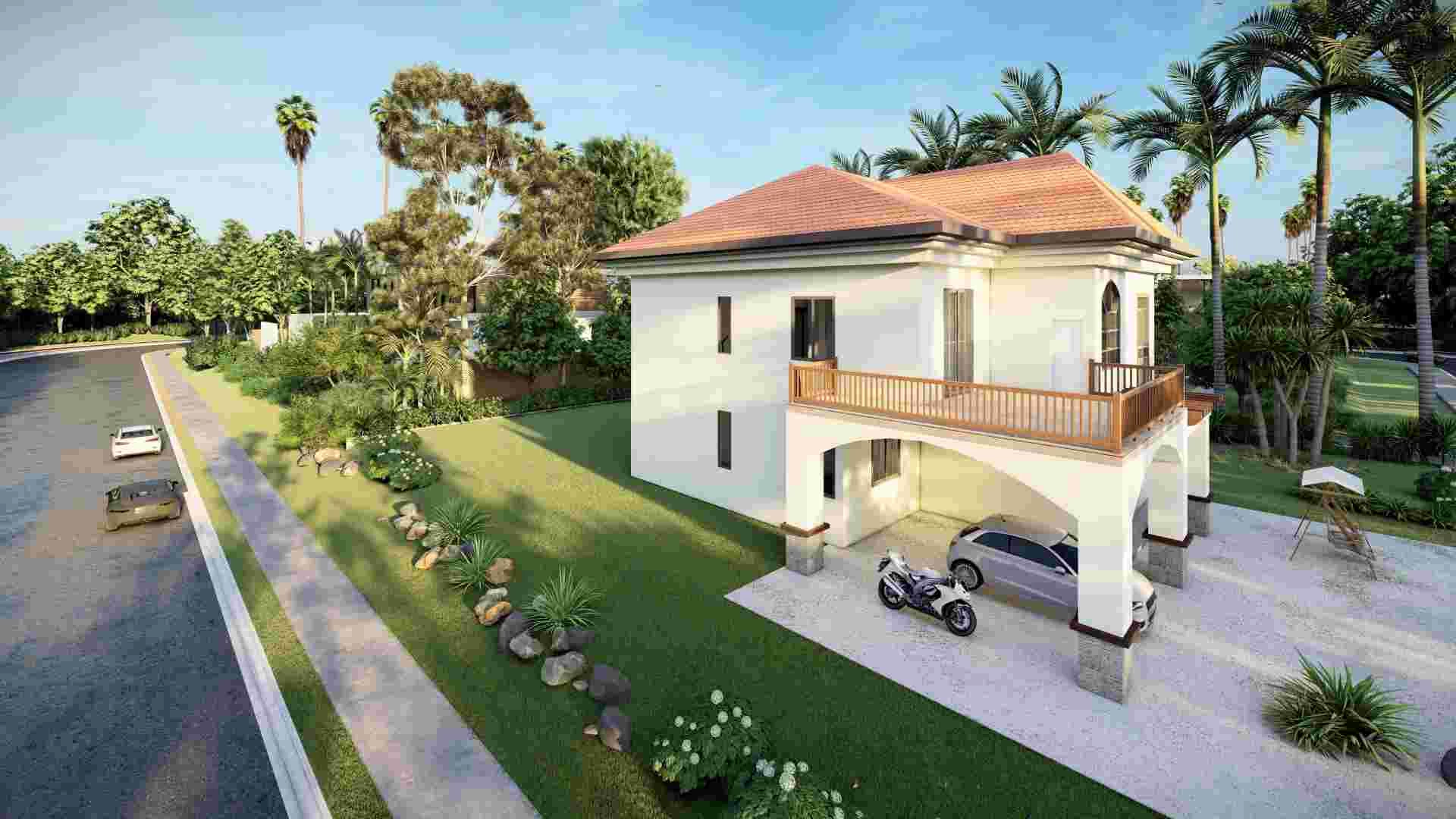Are Light Steel Villas Suitable for Rural Areas in the South?
2024-08-17 15:13
The suitability of light steel villas in rural southern areas is a topic worth exploring, involving multiple aspects such as building materials, climate conditions, economic costs, and living needs. The following is a comprehensive analysis of this issue to help you better understand the applicability of light steel villas in southern rural areas.

Definition and Characteristics of Light Steel Villas
A light steel villa is a residential building type that uses a light steel structure as the main framework material. Compared to traditional concrete or brick structures, light steel villas have the following characteristics:
1. Lightweight and High Strength: Light steel structures are relatively lightweight but have high strength, which makes them perform excellently in terms of earthquake resistance and wind resistance.
2. Fast Construction Speed: Since light steel components are mostly prefabricated, they can be produced in a factory and assembled quickly on-site, significantly reducing construction time.
3. Environmentally Friendly and Energy-Efficient: The construction of light steel villas generates less construction waste, and the light steel materials are recyclable.
4. Flexible Design: Light steel structures can achieve larger space spans, providing more flexibility and freedom in design.
5. Corrosion Resistance: Light steel structures undergo anti-corrosion treatment, offering good resistance to corrosion and making them suitable for various environmental conditions.
Climate Conditions in Southern Rural Areas
Southern rural areas typically have a warm and humid climate, characterized by the following aspects:
1. High Temperature and Humidity: The southern regions experience high temperatures and significant humidity, especially in summer. This climate imposes higher requirements on the choice of building materials and design.
2. Heavy Rainfall: The southern areas receive substantial rainfall, and frequent rain can lead to moisture problems in buildings. A long-term humid environment challenges the durability of building structures and interior finishes.
3. Typhoon Influence: Coastal southern regions are affected by typhoons, with strong winds and heavy rain posing higher demands on the building’s wind and rain resistance.
Analysis of the Suitability of Light Steel Villas in Southern Rural Areas
1. Moisture Resistance and Damp Proofing
Light steel villas have relatively good moisture resistance, but special attention needs to be given to damp proofing in the high-humidity environment of the south. Light steel structures usually use galvanized treatment to prevent rusting, and external walls and roofs are often equipped with waterproof materials. However, these protective measures need regular inspection and maintenance to ensure their effectiveness in a long-term high-humidity environment.
During the design phase, moisture-proof materials like moisture-proof membranes and waterproof coatings can be used, and the design should include ventilation openings and drainage systems to reduce the impact of moisture on the building.
2. Typhoon Resistance
Light steel structures are lighter in weight and thus have strong wind resistance. In coastal southern regions facing typhoon threats, light steel villas' wind resistance can effectively reduce wind damage to the building. However, to improve typhoon resistance, design considerations should include reinforcement measures, such as increasing structural stability and wind load calculations, to ensure the building can withstand strong wind pressures.
3. Construction Speed and Economic Viability
The fast construction speed of light steel villas is an advantage in southern rural areas. Given the limited human resources and construction conditions in southern rural areas, traditional construction methods might increase construction costs and difficulties due to longer construction periods. The rapid construction of light steel villas can reduce labor costs and construction time.
Economically, while the initial investment in light steel villas may be higher than traditional brick and concrete structures, the shorter construction period and lower maintenance costs can result in lower overall costs. Additionally, the excellent energy-saving performance of light steel villas can reduce long-term energy expenses.
4. Aesthetics and Adaptability
Light steel villas can be designed according to personal needs, offering a modern appearance with strong individuality that meets various aesthetic requirements. Southern rural areas feature diverse architectural styles, and light steel villas can be integrated with traditional styles to create modern rural homes.
Conclusion
Light steel villas have certain applicability in southern rural areas but require targeted design and handling according to local climate conditions. In terms of moisture resistance and wind resistance, the design and construction of the building need to be strengthened to adapt to the climatic characteristics of southern rural areas. Although the initial investment is higher, the quick construction speed, environmental friendliness, and economic benefits of light steel villas make them a viable option worth considering in southern rural areas.



